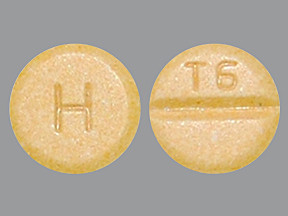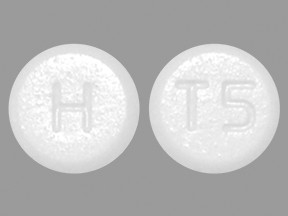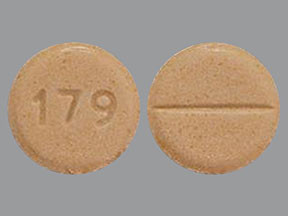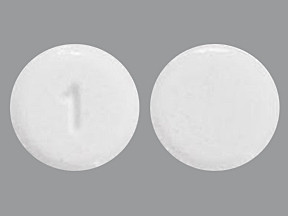TETRABENAZINE - ORAL
PHONETIC PRONUNCIATION: (TE-tra-BEN-a-zeen)
COMMON BRAND NAME(S): Xenazine
GENERIC NAME(S): tetrabenazine
Uses
USES: Tetrabenazine is used to decrease the uncontrollable movements (chorea) caused by Huntington's disease. However, it is not a cure for the disease. Reducing the chorea will help you take part in more of your normal daily activities. This medication is thought to work by decreasing the amount of certain natural substances in the brain (monoamines such as dopamine, serotonin, and norepinephrine), which are involved with nerve and muscle function. Tetrabenazine belongs to a class of drugs called monoamine depletors.
How to use TETRABENAZINE - ORAL
HOW TO USE: Read the Medication Guide provided by your pharmacist before you start using tetrabenazine and each time you get a refill. If you have any questions, consult your doctor or pharmacist. Take this medication by mouth with or without food, usually once a day in the morning when you first start treatment or as directed by your doctor. Your doctor may gradually increase your dose to 2 or 3 times a day over several weeks. A slow increase in your dose will help your doctor find the best dose for you while keeping side effects as low as possible. The dosage is based on your medical condition, response to treatment, and other medications you may be taking. Be sure to tell your doctor and pharmacist about all the products you use (including prescription drugs, nonprescription drugs, and herbal products). Take this medication regularly to get the most benefit from it. To help you remember, take it at the same time(s) each day. If you stop taking this drug for several days, then start taking it again, you may need to slowly increase your dose until you reach the regular dose you had been taking. Follow your doctor's directions on how to restart treatment. Tell your doctor if your uncontrolled movements do not improve or if they worsen.
Side Effects
Precautions
Interactions
Overdose
Images

- color
- yellowish-buff
- shape
- round
- imprint
- H, T6

- color
- light yellow
- shape
- round
- imprint
- 394
Reviews
Faq for TETRABENAZINE - ORAL
Tetra benazine is used to treat involuntary movements (chorea) associated with Huntington's disease.
Tetra benazine works by reducing the amount of certain chemicals in the brain that are involved in involuntary movements.
No, tetra benazine cannot cure Huntington's disease. It can only help to manage the symptoms, especially the involuntary movements.
Common side effects of tetra benazine may include drowsiness, restlessness, akathisia (inner restlessness), depression, and parkinsonism-like symptoms.
Yes, tetra benazine can interact with other medications, including certain antidepressants and dopamine antagonists. It is important to inform your doctor about all the medications you are taking before starting tetra benazine.
The effects of tetra benazine may start to be noticeable within a few days to weeks of starting treatment. However, it may take up to several weeks to reach its maximum effectiveness.
Tetra benazine is not recommended for use during pregnancy due to potential risks to the developing fetus. It is important to discuss the potential risks and benefits with your doctor if you are pregnant or planning to become pregnant.
Tetra benazine is generally not recommended for use in children unless specifically prescribed by a doctor. The safety and effectiveness of tetra benazine in children have not been well-established.
Tetra benazine should be taken exactly as prescribed by your doctor. It is usually taken 2 to 3 times daily with or without food. Follow the dosing instructions provided by your healthcare professional.
Warning
WARNING: Tetrabenazine can sometimes increase the risk of depression and suicidal thoughts/attempts. People with Huntington's disease are more likely to have depression and suicidal thoughts/attempts. Discuss the risks and benefits of this medication with your doctor. People who are not being treated for their depression and suicidal thoughts/attempts, or people who have persistent symptoms of these conditions (even with medication/treatment) must not use tetrabenazine. Tell your doctor right away if you or your family/caregivers notice that you have new/worsening symptoms of depression, sadness, loss of interest in activities you used to enjoy, suicidal thoughts/attempts, or other mental/mood/behavior changes (such as new/worsening anxiety, panic attacks, trouble sleeping, irritability, hostile/angry feelings, strong/abnormal urges, severe restlessness, very rapid speech).
Disclaimer
IMPORTANT: HOW TO USE THIS INFORMATION: This is a summary and does NOT have all possible information about this product. This information does not assure that this product is safe, effective, or appropriate for you. This information is not individual medical advice and does not substitute for the advice of your health care professional. Always ask your health care professional for complete information about this product and your specific health needs.



No Reviews Yet